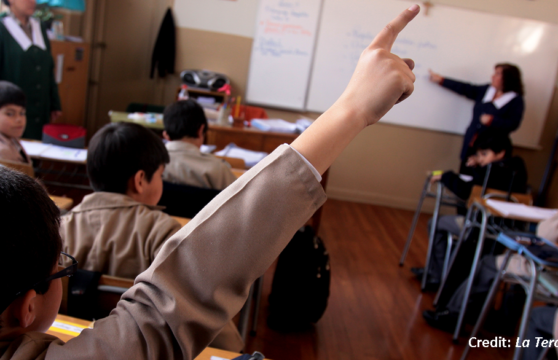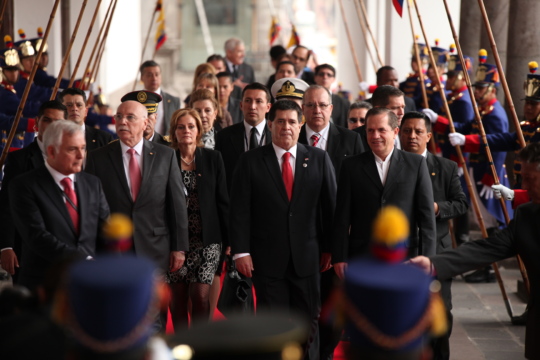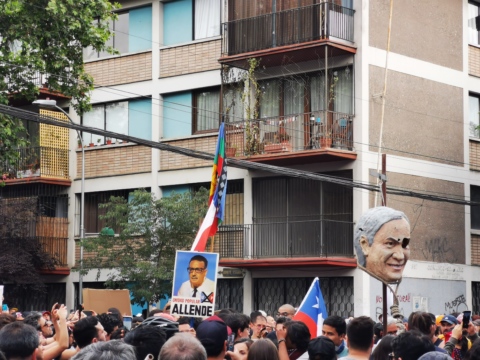
Socioeconomic School Segregation in Chile
Paper explores how market dynamics operating in the education system have impacted education in Chile.
This post is also available in: Spanish
In Chile, the second government of Sebastian Piñera in 2018 was viewed as the end of a cycle – the return of the Latin American right, together with Macri in Argentina, Duque in Colombia, and PPK in Peru. In Chile, the main threat in the presidential elections was seen as the road towards “Chilezuela” – that is, disorder, violence, crisis, and above all massive state intervention and rampant corruption.
In this way, Piñera won the elections with an agenda that some called an “eviction,” to highlight changes that his predecessor, Michelle Bachelet, tried to pursue during her second government. Across the world, there are no good second terms, and Chile has not been an exception. While Bachelet won the 2014 elections with proposals for constitutional changes, increasing social benefits and reforming health and pension systems, her accomplishments were limited.
Piñera, for his part, started his second term offering “better times” and in many respects opposing the reforms that had been previously implemented, especially regarding labor and tax policies. The electoral success clouded the government’s analysis that proceeded with little strategic focus, on a path aimed at building an international legacy (some examples of this aspiration included the Lima Group, as well as leadership in APEC and COP25 that were scheduled to be held in Santiago).
But the domestic front was clearly weak. There are five dimensions that are worth emphasizing not only to understand some of the reasons behind the social explosion but also to anticipate its possible evolution in coming months. First, the Chilean people are tired, overwhelmed, indebted, and survive with the promise of being middle class when in reality they are just above the poverty level, as a result of enormous effort and with limited chances to sustain their position. Data is unequivocal: the majority of Chileans survive and confront tremendous obstacles to attain a quality of life with dignity.
Second, in the last decade the institutions that had enjoyed high levels of trust from Chilean citizens have imploded because of corruption scandals of the military and police, as well as pedophilia and sexual abuses in the Catholic Church. What seemed to represent the value of institutions has disappeared. In just a short time we went from believing Chile was a country without corruption and with strong institutions, to one characterized by high levels of impunity.
Thirdly, politicians do not enjoy citizen support. For many years, less than half the population has voted in elections that seemed like a performative act to change the faces of those who occupied the seats of power. Faces that did not change, just switched places, going quickly, and without any problem, from ministers to representatives in areas that had been regulated by their ministries, and vice versa. The political class consolidated its power in the last four decades, but was small and with close links, almost like a family. Such a situation distanced the political class from the citizenry, who started to associate them with special privileges, corruption, and impunity.
Fourth, market competition seems like a fantasy. Available evidence in recent years has shown many mechanisms of collusion between diverse businesses that fixed prices, impacting the pocketbooks of all Chileans in systematic and brutal ways. There are many examples, but one common feature in all of them: impunity. We realized that not all criminals go to jail.
Fifth, a new Chile is being created, but it has not been heeded. The new Chile has a young face and has much less fear in expressing discontent. It has greater capacity to overcome barriers of what has been considered “politically correct.” It has almost never voted, and for that reason democracy appears as a distant gain. It has seen their fathers/mothers/grandfathers/grandmothers work without rest, hoping to build a better quality of life. It recognizes and lives with inequalities of every kind, discrimination, police abuse, and is clearly divorced from representative politics.
The streets have been filled with Chilean men and women who demand changes, not only because of inequality and the nearly unattainable dream of progress based on individual accomplishments, but also because of a sense of being mistreated, the perception of abuse, the evidence of discrimination, and multiple signs of impunity. The violence that has been seen in many facets of the current situation is difficult to interpret. We are still too deep in the middle of the turbulence to understand the path to follow. Only one thing is clear – there is no going back.
Paper explores how market dynamics operating in the education system have impacted education in Chile.
Second, third, and fourth terms run rampant in Latin America. But are they such a good idea?
What are the implications for the massive protests in Chile for its political balance of power?

